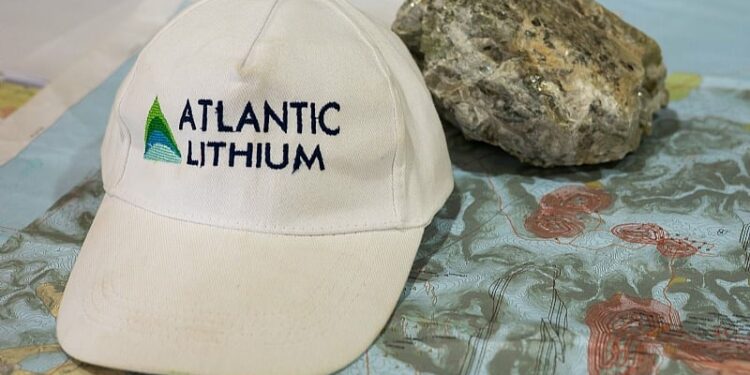NRGI Urges Caution on Fiscal Concessions for Atlantic Lithium
The Natural Resource Governance Institute (NRGI) has urged the Government of Ghana to anchor any fiscal concessions granted to Atlantic Lithium on rigorous economic analysis, warning that arbitrary tax reliefs risk undermining national interests in the exploitation of the country’s lithium reserves.
Speaking to NorvanReports during a media engagement on Ghana’s Lithium Fiscal Regime and Refinery Efforts, NRGI Country Manager, Dennis Gyeyir, emphasised that any revisions to terms agreed in 2023 must be grounded in feasibility studies that demonstrate both commercial sustainability for the company and fiscal prudence for the state.
“Any fiscal concessions must be supported by an economic feasibility study that shows the company will not be disadvantaged, but also that the government will not lose unnecessarily,” Gyeyir stated. “We’ve proposed a sliding scale royalty regime that adjusts with lithium price fluctuations.”
Atlantic Lithium is reportedly seeking a revision of its tax obligations following a sharp drop in lithium prices—from over $1,000 per tonne at the time of contract signing to approximately $700 per tonne currently.
NRGI’s position is that rather than granting blanket tax reliefs, the government should adopt flexible, price-responsive instruments such as sliding scale royalties, benchmarked pricing for exports, and robust cost auditing protocols involving both the Minerals Commission and the Ghana Revenue Authority (GRA).
Need for Transparency and Due Diligence
Gyeyir further called for enhanced transparency and stronger data governance, arguing that Atlantic Lithium must disclose its assumptions and projections when requesting concessions. “Government must undertake its own modelling—as we do at NRGI—to verify whether the company’s demands are justified,” he said.
He stressed that while value-added tax (VAT) concessions on critical equipment could be considered, broad exemptions must be avoided to safeguard revenue.
“VAT refunds are standard, but where possible, exemptions can be granted on specific capital-intensive imports like plants and excavators,” he noted. “Still, these must be tied directly to project viability and not extended across the board.”
Refinery Plans Require Long-Term Industrial Vision
On the issue of refining lithium domestically, Mr Gyeyir maintained that current economic conditions render such a venture unviable. However, he was clear that NRGI does not oppose refining in principle. Rather, it advocates a phased, policy-led approach grounded in industrial planning.
“We propose that government begin with a robust industrial policy that includes human capital development, infrastructure investment, and research for value addition,” he said.
Gyeyir underscored the importance of linking future infrastructure—such as energy from gas processing plants—to the lithium refinery to improve viability. He warned that water availability could become a binding constraint, as Ghana Water Company is already under strain and a refinery would require 90,000 litres daily.
“We’re not saying Ghana should abandon refinery ambitions. But government must lay the foundations first—skills, power, water, and logistics—before pursuing such a capital-intensive venture,” he concluded.
With lithium rapidly becoming a critical mineral for the global energy transition, Ghana’s policy decisions on its reserves—particularly in ensuring fair value, transparency, and sustainable industrialisation—will have far-reaching consequences for the economy.








